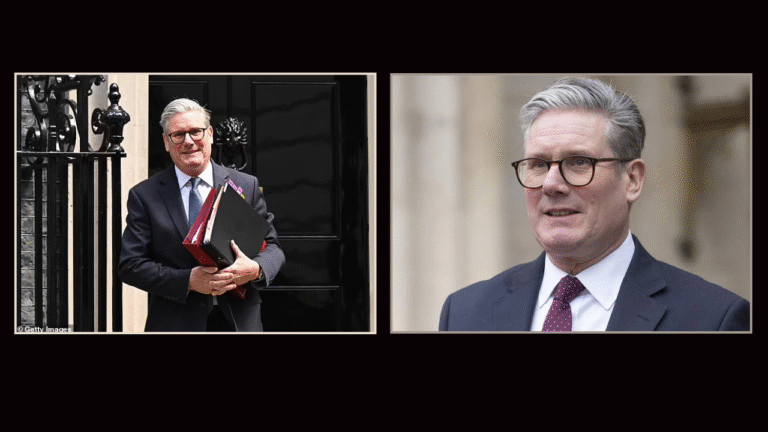Dan Hodges is a name that frequently surfaces in British political discourse, often sparking debate and controversy. As a political journalist and commentator, Hodges is recognized for his sharp analytical style, willingness to break with conventional partisan loyalty. And a career that has seen him evolve from a staunch Labour Party supporter to a politically independent voice. His opinions, which oscillate between center-left and centrist viewpoints, often challenge both Labour and Conservative narratives. His unique perspective makes him one of the most interesting and sometimes divisive voices in contemporary UK journalism. This article provides an in-depth look at Dan Hodges, his career in journalism, and his shifting political views.
Background and Career of Dan Hodges
Dan Hodges was born on March 7, 1969, in Lewisham, London, into a family with strong political and artistic roots. His mother is Glenda Jackson, a two-time Academy Award-winning actress who later transitioned into politics, serving as a Labour MP for over two decades, and growing up in such an environment exposed Hodges early on to the intersection of public service and public performance. His father, Roy Hodges, was a stage manager, contributing further to a household deeply immersed in both the creative and political arenas.
Hodges pursued higher education at Edge Hill College in Lancashire, where he studied English Literature and Communications. His professional life began within the political machinery itself, working as a parliamentary researcher for his mother in the early 1990s. While he has openly acknowledged that this position was attained through nepotism, it nonetheless served as a stepping stone for his involvement in political communication and public affairs.
Over the next several years, Hodges held various roles in lobbying and public relations. He worked with the GMB union and several transport advocacy organizations, such as Freedom to Fly and Transport for London. These roles gave him a deeper understanding of media strategy and the mechanics of political messaging—skills that would later underpin his journalistic work.
Dan Hodges Rise as a Journalist
Dan Hodges transitioned into journalism with notable success. He began writing political columns and commentary for respected publications including the New Statesman, The Daily Telegraph, and The Mail on Sunday. His journalistic voice is distinct: provocative, informed, and unapologetically opinionated. Hodges’ writings frequently criticize the failings of political leadership on both sides of the aisle, making him an outlier in a media landscape that often leans heavily into partisan loyalty.
One of the features that distinguishes Hodges as a journalist is his willingness to evolve. He has never been afraid to reassess his allegiances or revise his stances based on changing political realities. His style often blends insider knowledge with a populist tone, making his columns accessible to general readers while still being insightful for seasoned political observers. In 2016, Hodges was named Political Commentator of the Year at The Comment Awards, a testament to his impact on British political journalism.
In addition to his columns, Hodges is also known for his work in board gaming and authorship. He designed a wargame based on the Falklands War and released a political book titled One Minute to Ten, which examined the events and implications of the 2015 UK general election.
Dan Hodges’ Political Views and Affiliations
Hodges began his political journey as a firm supporter of the Labour Party, reflecting the traditional left-leaning views of his family, particularly his mother. However, even in his early affiliations, he maintained a pragmatic approach to policy and leadership. Hodges supported centrist candidates such as David Miliband in the 2010 Labour leadership contest and Jon Cruddas in the 2007 deputy leadership election, labeling himself a “tribal neo-Blairite.”
His disillusionment with Labour began to surface during Ed Miliband’s leadership. Hodges openly criticized Miliband’s policy direction and his failure to craft a compelling narrative that could unify the party. The turning point came in 2013, when the UK Parliament voted against military action in Syria—a decision Hodges attributed to what he saw as Miliband’s opportunistic and unprincipled leadership. Deeply disappointed, Hodges announced his resignation from the Labour Party, stating that the party had become disconnected from its core values and national responsibility.
Despite a brief return to Labour in 2015 to support Yvette Cooper in the leadership race, Hodges once again severed ties with the party following Jeremy Corbyn’s election as leader. He viewed Corbyn’s platform as too radical and fundamentally misaligned with his centrist beliefs. Since then, Hodges has positioned himself as a political independent, often supporting Conservative policies and figures when he deems them effective, but not without offering critique when warranted.
This fluidity in political alignment has both alienated and endeared him to different segments of the public. Some view Hodges as inconsistent or opportunistic, while others respect his independence and intellectual honesty.
Controversies and Public Perception
Given the often polarizing nature of his commentary, it is no surprise that Dan Hodges has found himself at the center of various controversies. Whether it’s his scathing critiques of Labour leadership or his sometimes supportive stance towards Conservative leaders like Boris Johnson, Hodges frequently attracts both praise and condemnation.
He drew significant attention during the 2012 London Mayoral elections when he publicly declared support for Boris Johnson over Labour’s Ken Livingstone. Despite his Labour roots, Hodges criticized Livingstone as divisive and praised Johnson as a figure who could unite the city. This stance was widely debated and further marked his departure from traditional party lines.
In his columns, Hodges has often taken unpopular stances, particularly on foreign policy, Brexit, and leadership accountability. His ability to break away from ideological orthodoxy and call out inconsistencies in both major parties sets him apart in a political environment often driven by tribal loyalty.
Public opinion on Hodges is mixed. Some admire his fearlessness and forthrightness, viewing him as a voice of reason in an increasingly polarized media landscape. Others accuse him of being contrarian for the sake of attention. Regardless of where one stands, it is clear that Hodges plays a significant role in shaping political conversation in the UK.
Current Role and Recent Commentary
Today, Dan Hodges writes a weekly column for The Mail on Sunday, offering commentary on the most pressing political issues of the moment. His recent columns have tackled topics ranging from the chaos surrounding Brexit negotiations to the rapid changes in party leadership. He was particularly vocal during the political downfall of Boris Johnson, providing detailed accounts of the internal party conflicts and leadership failures that led to his resignation.
Hodges has also analyzed the brief and turbulent premiership of Liz Truss, drawing attention to the instability within the Conservative Party and its impact on public trust. His commentary often focuses on accountability and the real-world consequences of political decisions—a theme that has remained consistent throughout his career.
While no longer aligned with any political party, Hodges continues to advocate for centrist, practical policies and leadership that prioritizes national unity and economic responsibility.
Conclusion
Dan Hodges represents a rare breed of political journalist—one who is not bound by party loyalty and who is unafraid to revise his views in light of new evidence or changing political realities. From his beginnings as a Labour Party researcher to becoming one of the UK’s most read political columnists, Hodges has carved out a space where critical thinking, independent judgment, and fearless commentary take precedence.
His career and political evolution reflect broader shifts in British politics, where traditional party boundaries are increasingly blurred, and where public figures are judged not by loyalty to a cause but by the consistency and clarity of their ideas. Whether you agree with him or not, Dan Hodges remains a vital voice in Britain’s political conversation.
Frequently Asked Questions (FAQ)
Q1: Who is Dan Hodges?
Dan Hodges is a British journalist and political commentator known for his independent and often provocative takes on UK politics. He currently writes a weekly column for The Mail on Sunday.
Q2: What political party does Dan Hodges support?
Hodges was originally a Labour supporter but left the party due to disagreements with its leadership. He now identifies as politically independent, though he occasionally supports Conservative policies.
Q3: What is Dan Hodges known for in journalism?
He is known for his candid and often controversial political commentary. His writings regularly analyze the actions of political leaders and parties from a centrist viewpoint.
Q4: Has Dan Hodges written any books?
Yes, his book One Minute to Ten examines the 2015 UK general election and the fates of party leaders such as David Cameron, Ed Miliband, and Nick Clegg.
Q5: What are some key themes in Dan Hodges’ political views?
Key themes include centrism, strong national leadership, accountability in governance, and skepticism of political extremism on both the left and the right.
READ MORE: Saura Lightfoot-Leon: Spotlight on Her Movies and TV Shows


